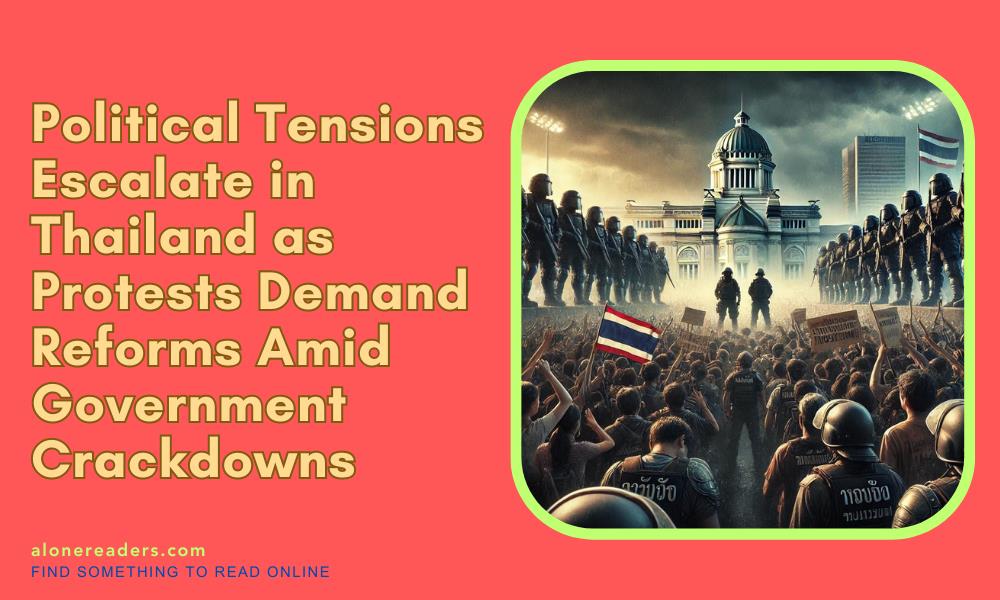
Bangkok, Thailand - The streets of Thailand have once again become the battleground for political unrest as thousands of protesters rally across the nation, demanding sweeping political reforms. The ongoing demonstrations, led predominantly by youth and opposition groups, have placed the Southeast Asian nation at the center of a rapidly escalating crisis, challenging the current government’s authority and prompting increased crackdowns by state security forces.
Thailand's political landscape has long been a complex tapestry of power struggles, coups, and constitutional reforms. However, the latest wave of unrest, which began in earnest in mid-2020, stems from deep-seated grievances over the military’s enduring influence in politics, the monarchy's role in governance, and the perceived erosion of democratic freedoms.
The protests have their origins in a student-led movement that initially focused on reforming the monarchy and reducing the power of King Maha Vajiralongkorn. Over time, the movement expanded its demands to include the resignation of Prime Minister Prayut Chan-o-cha, a former army general who seized power in a 2014 coup, the drafting of a new, more democratic constitution, and the end of harassment against political dissidents.
The protest movement, which has seen peaks and troughs over the past few years, gained renewed momentum in recent months as economic hardships exacerbated by the COVID-19 pandemic further fueled public anger. The youth, who make up a significant portion of the protesters, have been particularly vocal about their frustration with the government’s handling of the economy, corruption, and the lack of opportunities for younger generations.
Massive rallies have taken place in Bangkok and other major cities, drawing tens of thousands of participants. Protesters have employed a variety of tactics, from peaceful marches and symbolic gestures to more confrontational actions, such as blocking major roads and engaging in clashes with police. The use of social media platforms like Twitter, Facebook, and Telegram has been instrumental in organizing these demonstrations, despite government efforts to curb online dissent.
The Thai government, under the leadership of Prime Minister Prayut, has responded to the protests with increasing severity. Authorities have declared states of emergency in certain regions, banned gatherings, and imposed curfews in an attempt to suppress the demonstrations. Riot police and military personnel have been deployed to disperse crowds, often using tear gas, rubber bullets, and water cannons.
Human rights organizations have condemned the government’s heavy-handed tactics, citing numerous instances of excessive force and arbitrary arrests. According to reports from local NGOs, hundreds of protesters, including many young activists, have been detained under various charges, including sedition and violations of the lèse-majesté law, which prohibits criticism of the monarchy. The United Nations and other international bodies have called on the Thai government to respect the rights to peaceful assembly and free expression.
A central issue in the protests is the role of Thailand’s monarchy, which has traditionally been revered and seen as above the political fray. However, King Maha Vajiralongkorn's close ties to the military and his consolidation of power have led to growing discontent. Protesters have called for a reformation of the monarchy’s powers, demanding transparency and accountability.
This is a highly sensitive issue in Thailand, where the monarchy is protected by strict laws. The lèse-majesté law, which carries heavy penalties, has been increasingly used to silence critics. Despite the risks, protesters have continued to push the boundaries, openly questioning the monarchy’s role and advocating for reforms that were previously unthinkable.
The international community has been closely monitoring the situation in Thailand, with various governments and organizations expressing concern over the escalating tensions. The United States, the European Union, and several human rights groups have issued statements urging the Thai government to engage in dialogue with the protesters and to refrain from using violence against peaceful demonstrators.
However, Thailand’s geopolitical importance in Southeast Asia, coupled with its long-standing relationships with key global powers, has resulted in a cautious approach from many international actors. While there is pressure on the Thai government to respect human rights, there is also a recognition of the delicate balance of power in the region.
As Thailand’s political crisis deepens, the path forward remains uncertain. The protesters have shown remarkable resilience, continuing to demand change despite the risks. The government, on the other hand, appears determined to maintain its grip on power, showing little willingness to concede to the demands for reform.
The potential for further violence looms large, with both sides entrenched in their positions. Analysts warn that without meaningful dialogue and compromise, the situation could spiral into a prolonged conflict, with devastating consequences for the country’s stability and economy.
In the meantime, Thailand’s citizens, particularly its younger generation, continue to hope for a future where their voices are heard, and their rights are respected. Whether this hope will be realized in the face of mounting repression remains to be seen, but what is clear is that the battle for Thailand’s political future is far from over.
Conclusion
The ongoing protests in Thailand underscore the profound challenges facing the nation as it grapples with demands for democratic reforms and the government's determined response. As political tensions rise, the situation remains volatile, with the potential for significant repercussions both within Thailand and beyond its borders.
The international community watches closely, but the resolution of Thailand's political crisis will ultimately depend on the actions of its leaders and the resilience of its people. The path forward is fraught with uncertainty, but the determination of the protesters suggests that the calls for change will not easily be silenced.